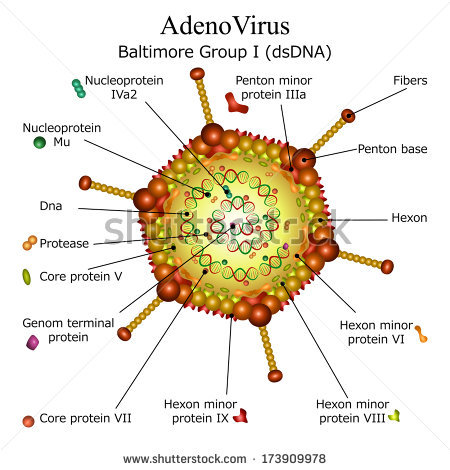INTRODUCTION
Adenoviruses are medium-sized, nonenveloped and icosahedral nucleocapsid with DNA containing viruses. It is made up of 252 capsomeres: 240 hexons forming the faces and 12 pentons at the vertices word Adenovirus is a Latin word which means gland and because this virus where first isolated from tonsils and adenoids gland of human and it causes respiratory infection

Genome:-
- Adenovirus consists of liner DS DNA genome.
- A protein molecule which is infectious is attached to the 5’ terminal of the DNA.
Replication:-
- Replication occurs in the nucleus.
- When virus particle is transported to the nucleus the core is released and turned into viral DNA histone complex.
- The early transcription is called out by RNA polymerase of the host and a number of the primary transcripts are formed.
- Then the transcripts are splashed, capped and polyadenylated given different m RNAs.
- The early protein is involved in DNA replication.
- The latter protein is virus coat protein.
- Viral DNA replication uses a virus-encoded protein as a DNA polymerase.
- For the replication of linear double-stranded DNA like adenoviruses initiation of replication begin at either end or both and simultaneously.
- The product of one round replication is double and single standard molecules.
- Then it cyclase buy inverted terminal repeats and a new complementary strand is synthesized.
- And the product is another DS molecule.

References
